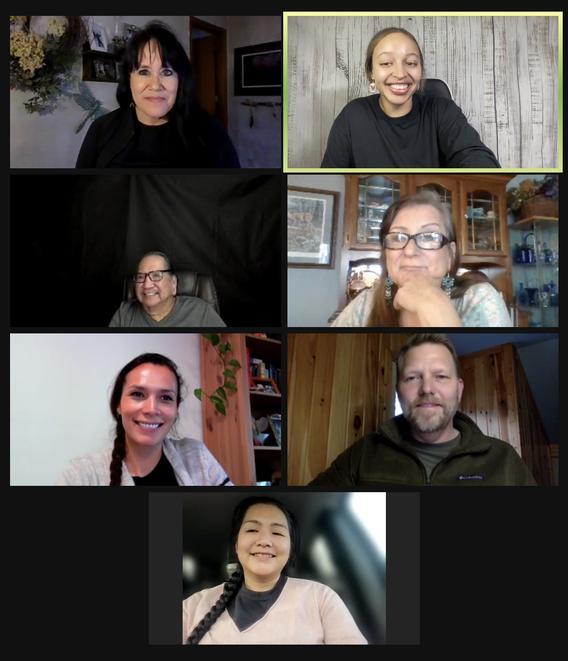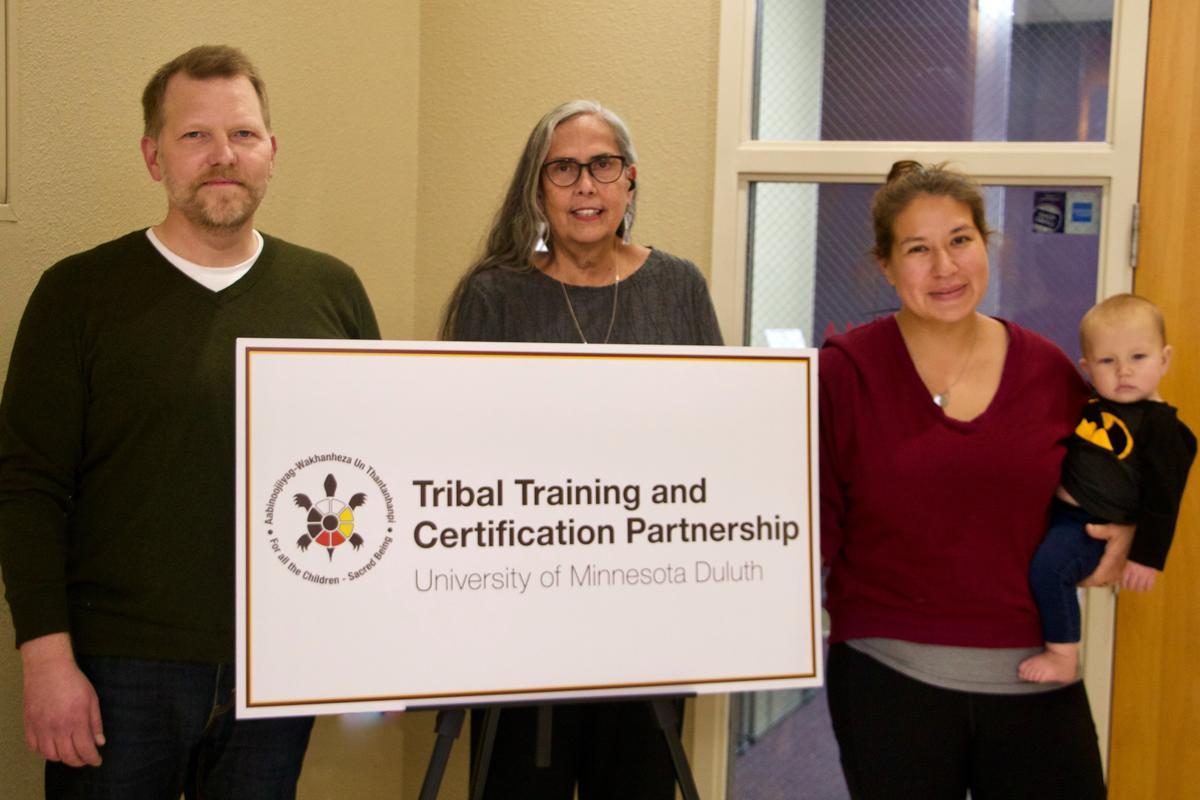In a special session last summer, the Minnesota legislature appropriated more than $4 million in funding over the next four years for the work of a UMD-based initiative to train public and tribal child welfare workers statewide.

training along with Mark Erickson, staff member of UMD's Center for
Regional and Tribal Child Welfare Studies.
The appropriation will be ongoing and was spurred by Minnesota tribes. It will provide about $1.05 million in annual funding to the Aabinoojiiyag-Wakhanheza Un Thantanhanpi – For all the Children – Sacred Being: Tribal Training and Certification Partnership (TTCP). The funds are designed to “provide training, establish federal Indian Child Welfare Act (ICWA) and Minnesota Indian Family Preservation Act training requirements for county child welfare workers, and develop Indigenous child welfare training for American Indian Tribes.”
Jeri Jasken directs the TTCP and says, “This has been very much needed for a long time.” She notes that a lot of the state-based training for the child welfare workforce doesn’t apply to tribes or recognize the separate, sovereign political status that tribes have. Tribal child welfare programs expressed the desire to have a training program that meets their needs, so over the next several months, the TTCP will be working with the 11 tribal nations within the state to outline this part of the program.
American Indian children in Minnesota are 16.8 times more likely than their white peers to be removed from their homes and placed in foster care. The TTCP’s goal is to achieve better outcomes for Native children and their families by building the capacity of the child welfare workforce.
TTCP training provides both a historical understanding and a cultural lens to provide cross-cultural education. Trainees learn about the need for ICWA and Minnesota Indian Family Preservation Act (MIFPA), as well as how to apply both in practice.
The funding will enable the partnership to enhance and grow its infrastructure and staffing to meet the training needs of the child welfare workforce. “It will allow us to develop a more robust system of basic and advanced ICWA training
for county workers and supervisors,” Jasken says.
Jasken anticipates hiring 10 staff members to assist in these efforts. Larissa Littlewolf was just hired to serve as the TTCP’s associate director. Littlewolf has been serving as one of the initiative’s community trainers and will start the new role on December 6.
The TTCP is based within the Center for Regional and Tribal Child Welfare Studies (CRTCWS), which is housed within the UMD Department of Social Work. The center has become nationally recognized for its work in these areas.
Bree Bussey, who directs the CRTCWS, says it has been “a long journey” to get to this point of sustainable funding. Bussey and Priscilla Day, former director of the CRTCWS, began developing specialized training for child welfare workers in 2009. “The overarching aspect of all our work is to address the disparities in out-of-home placement of American Indian kids in Minnesota,” explains Bussey.
Having direct access to the child welfare workforce has been key in these efforts, according to Bussey, as has developing good relationships with Minnesota tribes. “Tribes wanted the training to be provided by a Native-run organization. That was an important piece,” she says.
Jasken says the inherent trust and close relationship between CRTCWS and tribes helped lay an important foundation for the TTCP. She offers a “huge thank you to Minnesota tribal leadership for supporting and pushing for the authorization.”
Karen Nichols, associate director of the CRTCWS, notes that the appropriation is significant because the child welfare workforce training has relied so far on temporary grants. “One of the really important things about this funding is that it will continue on—there’s no end date for it. It really assures us that what we developed will continue.”
Feature photo at top includes Mark Erickson, CRTCWS; Sandy White Hawk, community trainer; Larissa Littlewolf (and her baby), TTCP's new associate director.
